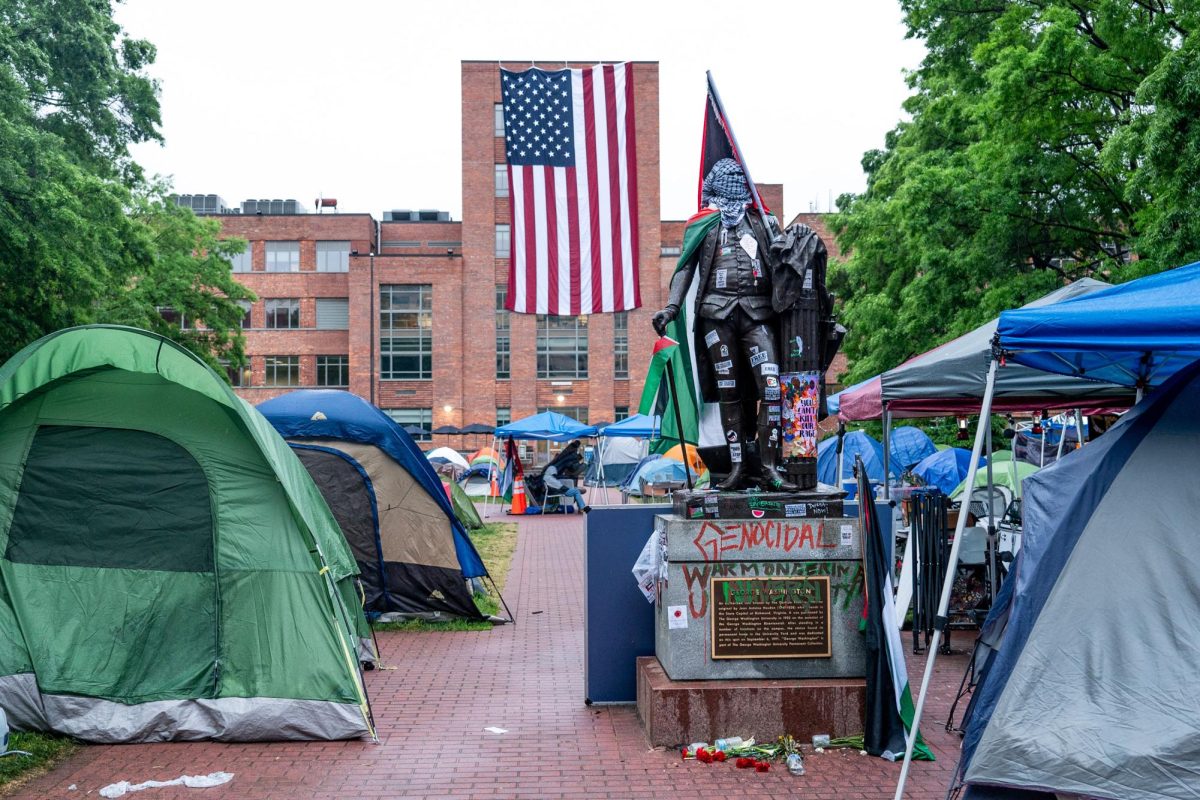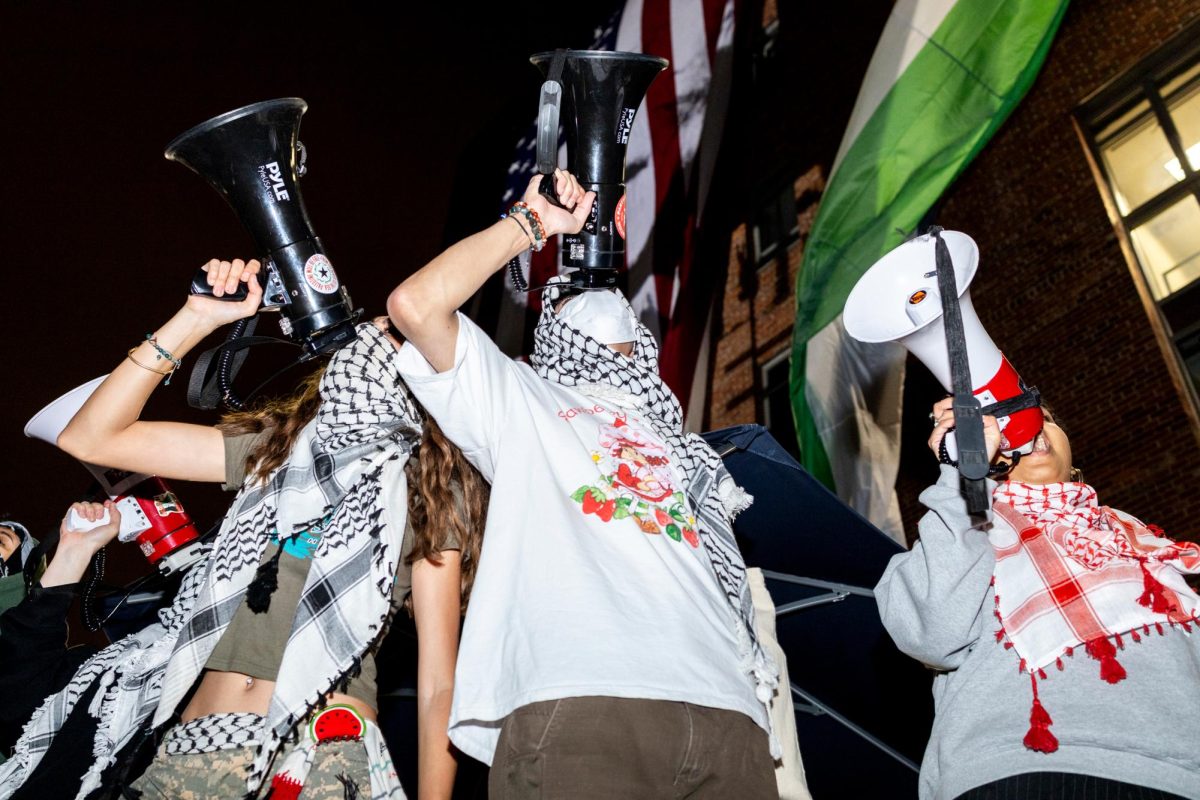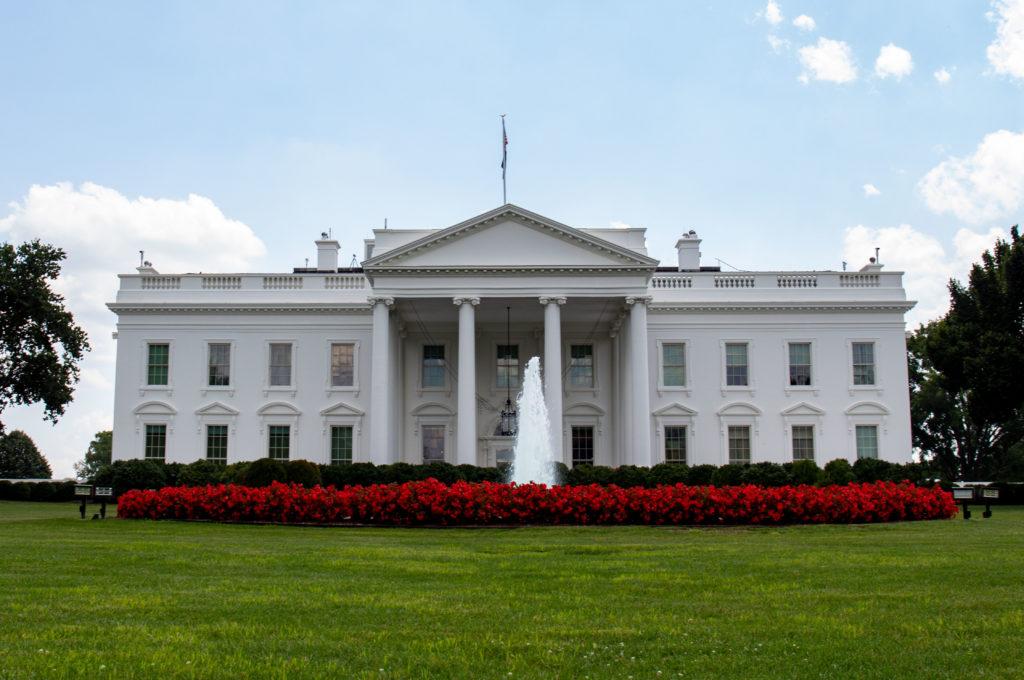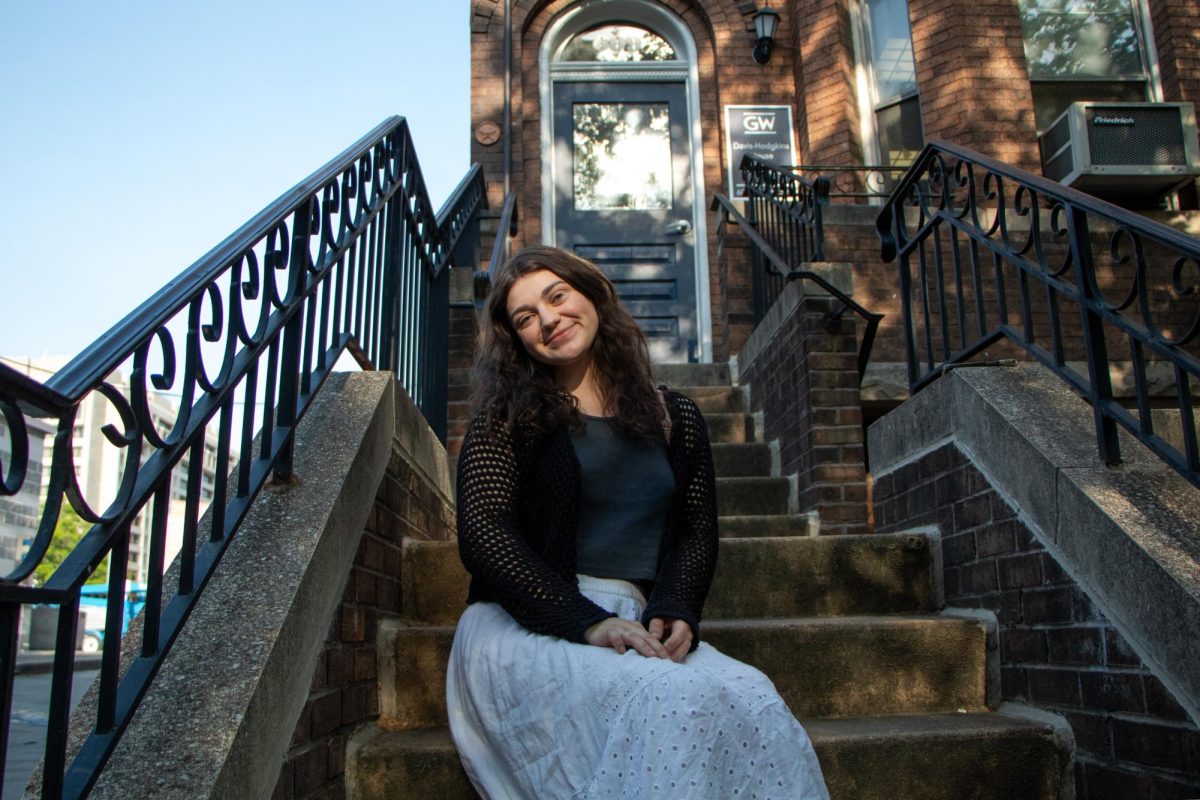 GW students were among hundreds of people who gathered across from the White House in Lafayette Park Wednesday to protest the Chinese government’s human rights abuses.
GW students were among hundreds of people who gathered across from the White House in Lafayette Park Wednesday to protest the Chinese government’s human rights abuses.
Chinese President Jiang Zemin’s visit to the White House for a U.S.-China summit drew more than 20 groups advocating human rights, workers’ rights, religious freedom and environmental protection, including GW’s Students for a Free Tibet.
“We roll out the red carpet for (Jiang) and he is Tiananmen Square,” said junior Nerissa Whittington, referring to the suppressed student protests in 1989.
“We had a really large turnout today and hopefully we are bringing
some attention to this problem,” Whittington said as she helped set up a 12-foot model of the Statue of Liberty in the park.
Also parading among the protesters were puppets of President Clinton and Jiang playing with a fishing pole, with dollars as bait.
“What China is doing is morally offensive – and what America is doing in supporting them is wrong,” junior Jonathan Skrmetti said. “Students are plugged into the political scene, and the more of them that tell Clinton (the abuses are wrong), the more he’ll listen. We elected him, after all.”
Students with strong beliefs about Tibetan affairs were joined by students just curious about the day’s events.
“Like a lot of students, I’m not too educated on the entire situation, but the basic issue of human rights should not be ignored,” said a freshman member of Students for a Free Tibet. “The students should definitely speak out.”
Two-thirds of Americans surveyed said the Chinese government should improve its human rights policies or lose its current trade status with the United States, according to a Wall Street Journal/NBC/Hart & Teeter poll released in May.
Students from other universities joined GW students at the rally.
Brown University freshman Peter Einersen was cloaked in a Tibetan flag.
 “We feel that freedom for anyone is undeniable, and we are all entitled to it. If we must travel a couple hundred miles to help the cause, then that’s what we should do,” Einersen said.
“We feel that freedom for anyone is undeniable, and we are all entitled to it. If we must travel a couple hundred miles to help the cause, then that’s what we should do,” Einersen said.
Buddhist monks also gathered in Lafayette Park.
Dorjee, a monk from New York, said, “The younger generation needs to know what human rights are and how to achieve them. Our duty is to help this generation. It’s good for them to know that we’re not playing a tricky game with China.”
Several celebrities and political notables rallied for a free Tibet, including Sens. Russ Finegold (D-Minn.) and Paul Wellstone (D-Wis.); Kerry Kennedy Cuomo, founder of the Robert F. Kennedy Memorial Center for Human Rights; actor Richard Gere and Adam Yauch, member of the music group Beastie Boys.
Gere, whose new movie Red Corner has brought renewed attention to human rights issues in China, discussed the Dalai Lama, Tibet’s exiled leader.
“Consider the absurdity of a government that is . afraid of a Nobel Peace Prize winner who only talks about dialogue,” Gere said. “That’s all we’re talking about – honest dialogue.”
Yauch addressed students’ role in the movement.
“Students are the core and root of the strength behind freeing Tibet,” Yauch said. “A lot of politicians and corporations are aware of what students believe because they can vote and buy their products.
“They can’t underestimate the power of students because they have the most influence,” said Yauch, who visited GW during the Tibetan Freedom Tour in 1996.
Yauch said he accepts that his popularity draws students to the Tibetan issue.
“It’s OK because it’s bait to bring people into it,” he said. “But it’s wrong when it becomes too weighted toward the celebrity and gets out of balance.”
“The student presence here makes a statement that the younger generation cares too,” freshman Megan Doyle said. “I’m skipping class right now because I feel that freeing Tibet is more important.”
(photos by Tyson Trish/editor in chief)







